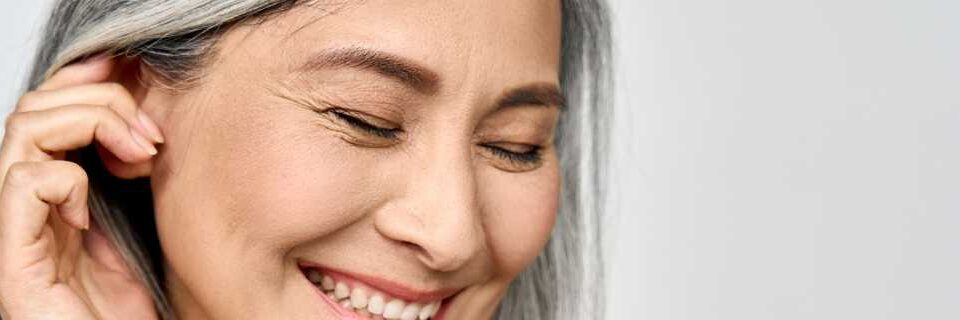
Self-Confidence Apps: Transform Your Life in Just a Few Minutes a Day

Demystifying Self-Hypnosis for Anxiety: How an Anxiety App Can Help
Table of Contents
- What are Hot Flashes, aka Hot Flushes?
- Managing Sleep Disturbances During Menopause with Self-Hypnosis
- Other Menopausal Symptoms
- Are Your Hot Flashes Menopausal Symptoms?
- What is Clinical Hypnosis and How Does Hypnotherapy Help Menopause?
- Self-Hypnosis for Hot Flashes Relief: Understanding How It Works
- The Science Behind Self-Hypnotherapy for Menopause and Hot Flashes
- Key Benefits of Self-Hypnotherapy for Hot Flash Relief
- Managing Multiple Menopausal Symptoms with Self-Hypnosis
- Incorporating Self-Hypnosis for Menopause Relief into Your Daily Routine
- Hypnotherapy as a Complement to Primary Care for Menopausal Women
- Feeling UpNow with Menopause Hypnosis
As women transition into the menopause and postmenopause stages, hot flashes can become a frequent and disruptive part of life. Traditional treatments may not always provide the desired relief, leading many to seek alternative solutions.
Welcome to this comprehensive guide on self-hypnosis for menopause relief, where we delve into the potential of hypnosis as a natural, non-pharmacological method to manage these uncomfortable episodes. Join us as we explore how self-hypnosis for managing hot flashes can alleviate these symptoms, improve sleep quality, and enhance overall well-being during this significant phase of a woman’s life.
What are Hot Flashes, aka Hot Flushes?
Hot flashes, also called hot flushes, are sudden feelings of warmth, usually most intense over the face, neck, and chest. These flushes are menopause-associated vasomotor symptoms which can lead to sweating and blushing and may cause you to wake up with soaked sheets – a symptom commonly known as night sweats.
All women are different: some women might feel hot flushes more than others. Some women do not experience them at all. In addition to frequency, the length of these warm feelings might vary.
Cause of Hot Flushes
Hot flushes typically begin during menopause, which officially starts a year after your last period. Except for premature menopause, the average onset age is 51. As a woman approaches menopause, her hormone levels, including estrogen, decrease. This drop in estrogen triggers the hypothalamus — the brain part that regulates body temperature. In response to these hormonal changes, it may release chemicals that cause the skin to heat up and sweat. This excess body heat can greatly reduce quality of life, preventing deep sleep.
A Special Category of Vasomotor Symptoms: Night Sweats
Night sweats, also known as nocturnal hyperhidrosis, are episodes of excessive sweating during sleep. These vasomotor symptoms are more than just breaking out in a sweat because you have too many blankets on your bed. They cause you to drench your bedclothes or bedding and can disrupt your quality of sleep, leading to insomnia and fatigue, which can, in turn, affect your mood, productivity, and overall quality of life.
Managing Sleep Disturbances During Menopause with Self-Hypnosis
Self-hypnosis for hot flash relief is a highly effective tool for managing the sleep disturbances that commonly affect menopausal and postmenopausal women. Poor sleep can significantly impact quality of life, often exacerbating medical or psychological conditions. By integrating self-hypnosis for menopause relief, you can break the cycle of poor sleep, stress, and other health issues, improving overall wellness.
Psychological Disorders and Cognition
Sleep problems in menopausal and postmenopausal women can contribute to psychological disorders and impair cognitive functions.
Depression and Anxiety: Insufficient sleep and frequent awakenings during the night can lead to or exacerbate symptoms of depression and anxiety. These mood changes can further disrupt sleep, creating a vicious cycle.
Stress: Chronic sleep deprivation can increase stress levels, further disrupting sleep and contributing to mental health issues.
Cognitive Function: Sleep is vital for cognitive functions like memory and focus. Poor sleep can result in difficulties with memory, concentration, and other cognitive functions. Imagine waking up after a “hot night” when you had difficulty sleeping. Tending to your daily tasks can be daunting when you have difficulty concentrating and are suffering from low mood.
Medical Disorders
Poor sleep among menopausal and postmenopausal women can also increase the risk of certain medical disorders.
Cardiovascular Disease: Sleep disturbances have been linked to a higher risk of cardiovascular diseases, including hypertension and heart disease.
Metabolic Disorders: Poor sleep can disrupt metabolism, leading to weight gain, obesity, and increased risk of diabetes.
Other Menopausal Symptoms
In addition to poor sleep, hot flashes and night sweats, menopause can bring about other symptoms directly or indirectly. These symptoms include:
- Mood changes,
- Fatigue,
- Joint pain,
- Vaginal dryness,
- Reduced sex drive,
- Problems with memory and concentration, and
- Weight gain.

Are Your Hot Flashes Menopausal Symptoms?
A symptom might have multiple causes. As a result, you should always discard other potential pathologies. Your doctor is the best person to ask. Let’s take the example of night sweats. They can be a symptom of several underlying health conditions:
- Hormonal Imbalances: Conditions like menopause or hyperthyroidism can cause hormonal imbalances that lead to night sweats.
- Infections: Certain infections, such as tuberculosis, HIV/AIDS, and endocarditis (an infection of the heart’s inner lining), can cause night sweats.
- Cancers: Night sweats can be an early symptom of some types of cancer, particularly lymphoma.
- Medications: Some medications, including certain antidepressants, hormone therapy drugs, and medication for lowering fever, such as aspirin or acetaminophen, can cause night sweats.
- Neurological Conditions: Disorders such as stroke or autonomic neuropathy can cause night sweats.
- Gastroesophageal Reflux Disease (GERD): This condition, characterized by the back flow of stomach acids into the esophagus, can also lead to night sweats.
If you’re experiencing frequent hot flashes or night sweats, it is essential to seek medical advice to determine the underlying cause and appropriate treatment.
What is Clinical Hypnosis and How Does Hypnotherapy Help Menopause?
Hypnosis is a state of consciousness involving focused attention increasingly used by medical professionals and mental health therapists. Many women have heard about the benefits of hypnosis for a gentler birth. In addition, researchers have uncovered many potential applications beyond women’s health and self-hypnosis for menopause relief has shown very encouraging results. Hypnosis may help with the following:
- irritable bowel syndrome management
- stress and anxiety
- smoking cessation
- pain relief
Clinical hypnosis or hypnotherapy uses guided relaxation, intense concentration, reduced peripheral awareness and focused attention to achieve heightened awareness. The person’s attention is so concentrated in this state that distractions fade.
What Happens During a Hypnotherapy Session?
During a hypnotherapy session, the therapist will guide you into a focused state and invite you to think about experiences and situations in a positive light, helping you change how you feel and behave. A hypnotherapist can provide in-person sessions or create a self-hypnosis audio for use at home or when travelling through a self-hypnosis app.
Self-Hypnosis for Hot Flashes Relief: Understanding How It Works
Self-hypnotherapy for hot flashes relaxes the body, reduces stress, and promotes positive thoughts. By leveraging cool imagery, such as a cool breeze, self-hypnosis for managing hot flashes can help you manage menopause symptoms. The hypnotherapist will skillfully use positive suggestions and cooling imagery, helping regulate your body’s temperature control and lower the frequency and severity of hot flashes. Hypnosis in the treatment of menopause symptoms offers many benefits. It is safe, non-invasive, and a great way to engage your mind and body differently at a crucial time, improving mood, using positive mental imagery, and reducing hot flashes.
In addition, when delivered digitally, self-hypnosis for hot flash relief sessions can seamlessly fit into your daily schedule. Just take a few minutes out of your day to listen to your hypnotherapist guide you on this healing journey.
The Science Behind Self-Hypnotherapy for Menopause and Hot Flashes
According to a 2017 study on breast cancer patients, clinical hypnosis is an effective, non-hormonal treatment for hot flashes and many symptoms typically experienced during breast cancer.
Another 2013 study aimed to explore the effectiveness of clinical hypnosis in treating vasomotor symptoms, such as hot flashes and night sweats, in postmenopausal women. The research was motivated by a growing interest in finding alternative, effective, low-risk treatments for these symptoms due to concerns about the risks associated with using estrogen and progesterone.
The randomized, single-blind, controlled trial involved 187 postmenopausal women who reported experiencing at least seven hot flashes per day (equivalent to at least 50 hot flashes per week). Participants received five weekly clinical hypnosis sessions or structured attention control.
The results revealed that clinical hypnosis led to a significant reduction in both self-reported and physiologically measured hot flashes. On average, there was a 74.16% reduction in hot flashes for those who underwent clinical hypnosis, compared to a 17.13% reduction for the control group. In addition, secondary outcomes like hot flash-related interference, sleep quality, and treatment satisfaction were significantly improved in the hypnosis group, who received five weekly sessions compared to the control group at a 12-week follow-up.
Prior to this study, self-hypnotherapy and hot flashes were not typically associated. But the study found that self-hypnosis can significantly reduce hot flashes and related symptoms in postmenopausal women.
Key Benefits of Self-Hypnotherapy for Hot Flash Relief
Self-hypnosis for menopause relief can also help address another complaint for many women going through menopause. According to research, self-hypnosis can be an effective tool for improving sleep. The effectiveness of self-hypnotherapy for hot flashes go beyond the benefits of relaxation. Self-hypnosis involves inducing a state of relaxation and calmness, which can help promote better sleep. But the suggestions provided during a session can facilitate deeper depth.
A 2021 study on 90 women who received a self-hypnosis audio recording showed meaningful improvement in sleep quality. The participants were instructed to listen daily to the hypnosis audio. The similar results between in-person and phone support groups show the benefits of self-hypnosis as an effective and convenient treatment option for menopausal and post-menopausal women.
Managing Multiple Menopausal Symptoms with Self-Hypnosis
Hypnotherapy can also be beneficial for managing mild anxiety and depression, common symptoms experienced during menopause. It can provide women with strategies to manage their menopausal symptoms and improve their overall quality of life.
Women have many tools to manage anxiety and depression. Regular exercise and activities like yoga can help improve sleep and reduce stress. Cognitive behavioural therapy can reduce the pressure from hot flashes. But self-hypnotherapy can address the root of the problem by reducing the severity and frequency of hot flashes and night sweats while relieving stress and improving sleep. With one tool, you may reduce many symptoms of menopause.
Incorporating Self-Hypnosis for Menopause Relief into Your Daily Routine
Many women have tried many solutions for reducing hot flashes. Exercise and lifestyle changes can provide relief for many post-menopausal women. For women who cannot or do not wish to manage menopausal symptoms with hormone replacement therapy, clinical hypnotherapy can be a great way to gain control over menopause symptoms. The North American Menopause Society also recommends the use of hypnotherapy for the management of menopause symptoms.

Hypnotherapy as a Complement to Primary Care for Menopausal Women
While hypnotherapy does not replace primary care, it can be a valuable complement. By integrating self-hypnosis for menopause relief into your daily routine, you can reduce the frequency and severity of your symptoms. Always consult with your healthcare provider before starting any new treatment. Ask your doctor about the side effects of each treatment, and know that hypnotherapy is a safe option with multiple benefits. It is a great way to Partner with your Mind.
Feeling UpNow with Menopause Hypnosis
The menopause transition does not need to be a sentence. Menopause hypnosis can help women navigate this challenging stage of life with a sense of calm and control. With its potential to alleviate hot flashes, improve sleep, and manage mood swings, it’s a treatment option worth considering. When you use it as a hot flash management tool, it can complement the treatments provided by your doctor. Feel free to peruse our blog posts, we tackle many topics beyond hypnosis for menopause, hypnotherapy and hot flashes.
Don’t let menopause and postmenopause symptoms disrupt your life any longer! If you’re struggling with hot flashes, sleep disturbances, and mood swings or want to regain control over your well-being, the UpNow app is here to help.
UpNow offers a range of effective self-hypnosis downloads designed specifically for menopausal and postmenopausal women. Our guided hypnosis sessions can help you manage your symptoms, reduce stress, and improve your sleep quality.
Take the first step towards better health and quality of life during this new phase of your life journey. Download the UpNow app today. Your path to wellness starts now!
UpNow Health only uses high-quality sources, including peer-reviewed articles, to support the facts within our articles. Experts review all our articles to ensure our content is accurate, helpful, and trustworthy.
1. Elkins, G. R., Fisher, W. I., Johnson, A. K., Carpenter, J. S., & Keith, T. Z. (2013). Clinical hypnosis in the treatment of postmenopausal hot flashes: a randomized controlled trial. Menopause (New York, N.Y.), 20(3), 291–298. https://doi.org/10.1097/gme.0b013e31826ce3ed
2. Roberts, R. L., Na, H., Yek, M. H., & Elkins, G. (2017). Hypnosis for Hot Flashes and Associated Symptoms in Women with Breast Cancer. The American Journal of clinical hypnosis, 60(2), 123–136. https://doi.org/10.1080/00029157.2017.1334622
3. North American Menopause Society, Stress, Getting Serious about the Solutions. Link
4. North American Menopause Society, Glossary, Link
5. Elkins, G., Otte, J., Carpenter, J. S., Roberts, L., Jackson, L. S., Kekecs, Z., Patterson, V., & Keith, T. Z. (2021). Hypnosis Intervention for Sleep Disturbance: Determination of Optimal Dose and Method of Delivery for Postmenopausal Women. The International Journal of clinical and experimental hypnosis, 69(3), 323–345. https://doi.org/10.1080/00207144.2021.1919520












